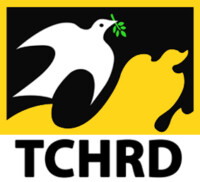The democratization process of Tibetan society in exile has been ongoing since the 1960s, with the Dalai Lama as its driving force and architect. This process culminated in the landmark decision of 2011, when the Dalai Lama formally announced his complete withdrawal from political life but also the dissolution of the Ganden Phodrang, Tibet’s historical form of government, to make way for a fully-fledged democratic government, thus marking a new era of Tibetan government with the separation of religion and politics. In August 2011, Dr Lobsang Sangay, a Harvard-educated academic, became the first elected political leader of the Tibetan people. As the Dalai Lama himself said on 19 March 2011: “The rule by kings and religious figures is outdated. We have to follow the trend of the free world, which is that of democracy…Contrary to the system of the Chinese Communist’s authoritarian rule in Tibet, our small community in exile has been able to establish a complete modern democratic system.”
The reasons and process behind the democratization of Tibetan society is discussed in this 2012 Democracy in Exile Report, released by the Tibetan Centre for Human Rights and Democracy (TCHRD) today.
The devolution of power by the Dalai Lama, and consequent amendments to the Charter for Tibetans in Exile, have been implemented to ensure that the model for Tibetan government is democratic and free from interference by the Chinese government. Despite the overwhelming disagreement of the Tibetan people with the Dalai Lama’s decision, with appeals by the Tibetan-Parliament in Exile and organisations and individuals from Tibet, the decision was carried forward and imposed on the people. This landmark separation of religion and politics has been taken for the long term benefit of the Tibetan people who are facing an immense struggle for freedom, dignity and basic civil liberties against the might of the “communist” in name (but capitalist by nature) Chinese government.
The report also gives a brief analysis of the concept of ‘democracy’, as well as a detailed breakdown of the Chinese political system of ‘democratic dictatorship’. A quick glance at some of the impressive provisions of the Chinese constitution may lead a reader (unfamiliar with the workings of the Chinese political system) to conclude that the country is ensuring ‘equal treatment of its citizens’. However, the TCHRD report exposes the actual reality of Chinese government as an authoritarian, militaristic dictatorship; demonstrating how even other ‘political actors’ such as the media, big business, academia and NGOs are interfered with, censored and controlled by the Chinese government.
In particular, China’s rule in Tibet is a highly centralized form of governance aimed to exercise complete control of ‘unruly natives’ rather than to provide any kind of ‘regional ethnic autonomy’. The main task of the Chinese regime, according to scholar Tibetan Samten Karmay, is to ‘exterminate national sentiments’ and ‘erase Tibet’s identity’. Due to unavoidable circumstances such as lack of time and resources, the report did not turn out as comprehensive as we would have wished it to be. It has many omissions, as it has not covered the Tibetan civil society – NGOs and the press – and the voices of ordinary Tibetans in and outside of Tibet: farmers, nomads, sweater sellers and so on. Similarly, the aspirations of Tibetan youth, of their trials and tribulations, are conspicuously missing. The Centre believes that until and unless these voices are listened to and given expression, Tibetan democracy cannot move forward. As John Dewey said: ‘’The task of democracy is forever that of creation of a freer and more humane experience in which all share and to which all contribute.’’ We believe that the measures the Dalai Lama has carried out to establish a fully democratic government for Tibetan society is a brave and vital step in the creation of such a humane experience.
The 2012 Report is available in English and can be downloaded free-of-cost at TCHRD.org
Contact Persons:
For Tibetan, Mr Tenzin Nyinjey, Mobile: (91) 98168-42395
For English, Ms Tsering Tsomo, Mobile: (91) 98168-75856
Landline: (91)-1892-223363
